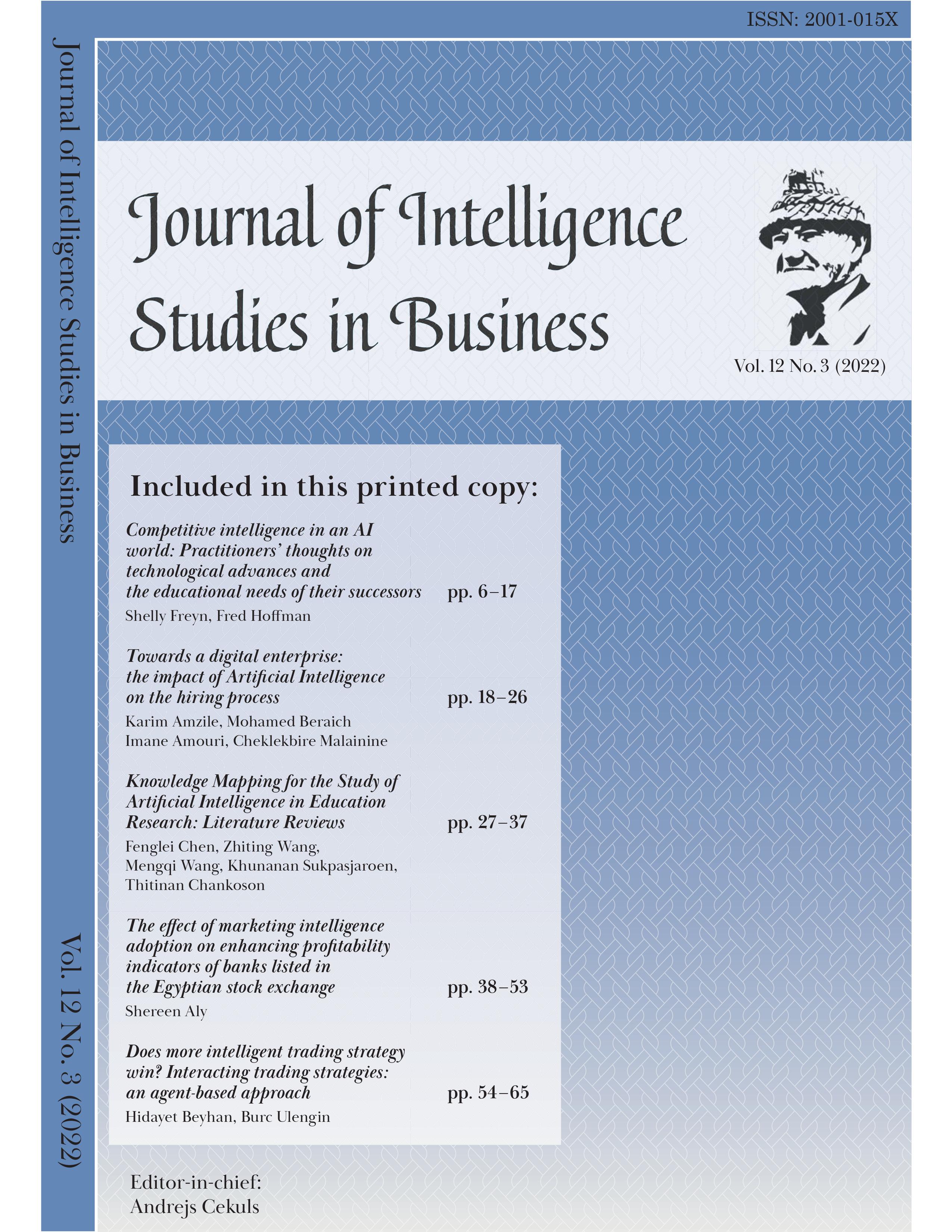AI-Driven Competitive Intelligence: Enhancing Business Strategy and Decision Making
DOI:
https://doi.org/10.37380/jisib.v12i3.961Keywords:
competitive intelligence, Business Strategy, Decision MakingAbstract
In the world of business, the importance of competitive intelligence cannot be overdone. As companies compete for market share and seek to gain an edge over their competitors, understanding the market and their competition becomes increasingly critical. As artificial intelligence continues to evolve, its potential to impact competitive intelligence grows.
References
Cekuls, A. (2022). Expand the scope of competitive intelligence. Journal of Intelligence Studies in Business, 12(1), pp. 4–5.
Stroumpoulis, A., Kopanaki, E., Varelas, S. (2022). Role of artificial intelligence and big data analytics in smart tourism: a resource-based view approach. WIT Transactions on Ecology and the Environment, 256, 2022, pp. 99 – 108.
Krakowski, S., Luger, J., Raisch, S. (2022). Artificial intelligence and the changing sources of competitive advantage. Strategic Management Journal, 2022.

Downloads
Published
Issue
Section
License
Copyright (c) 2022 Journal of Intelligence Studies in Business

This work is licensed under a Creative Commons Attribution-NonCommercial-NoDerivatives 4.0 International License.
Authors who publish with this journal agree to the following terms:- Authors retain copyright and grant the journal right of first publication with the work simultaneously licensed under a Creative Commons Attribution License that allows others to share the work with an acknowledgement of the work's authorship and initial publication in this journal.
- Authors are able to enter into separate, additional contractual arrangements for the non-exclusive distribution of the journal's published version of the work (e.g., post it to an institutional repository or publish it in a book), with an acknowledgement of its initial publication in this journal.
- Authors are permitted and encouraged to post their work online (e.g., in institutional repositories or on their website) prior to and during the submission process, as it can lead to productive exchanges, as well as earlier and greater citation of published work (See The Effect of Open Access).






